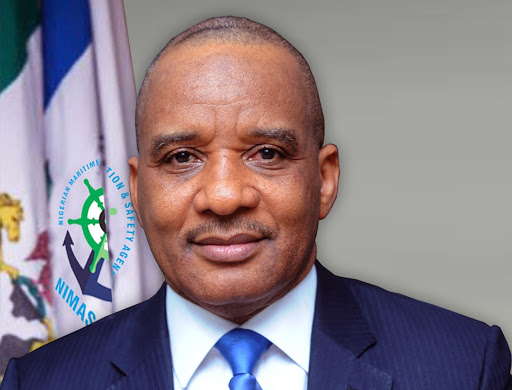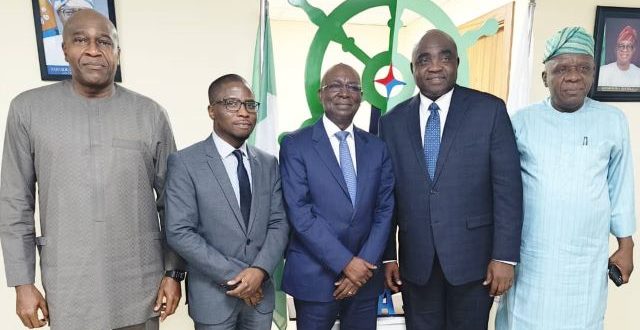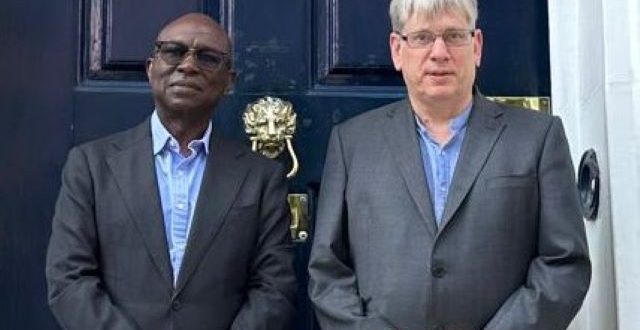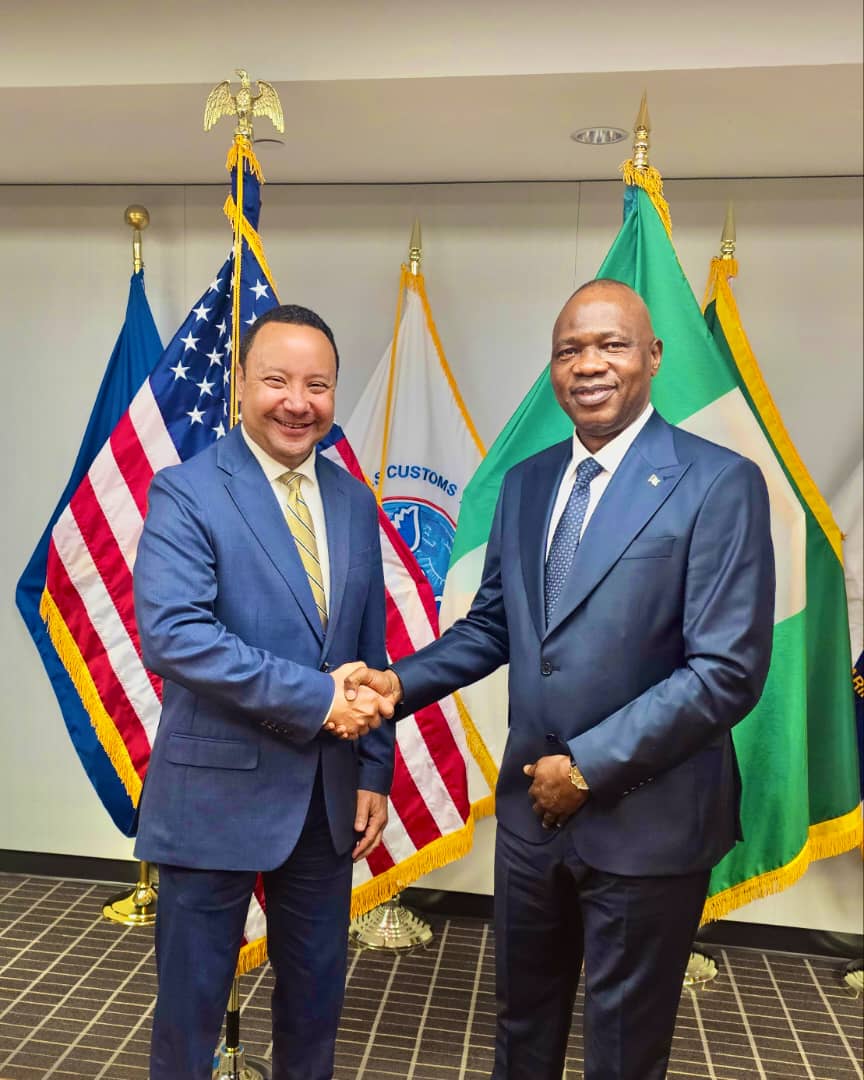Dr. Bashir Jamoh, Director General, NIMASA.
BY NKECHI NAECHE-ESEZOBOR—In a bid to enhanced maritime security under his deep blue project, the Nigerian Maritime Administration and Safety Agency (NIMASA) has taken delivery of additional mobile assets.
The newly acquired assets include: two Unmanned Aircraft System (UAS), 9 interceptor patrol boats and 10 armoured vehicles have been added to the existing assets earlier procured by the Federal Government and commissioned by President Muhammadu Buhari .
Applauding President Buhari for his sustained support in the fight against sea piracy and other maritime crimes, Dr. Bashir Jamoh, Director General of NIMASA, said the additional equipment will improve on the gains recorded in securing the Gulf of Guinea and Nigerian maritime domain.
He described the recently held Gulf of Guinea Maritime Collaboration Forum (GOG-MCF/SHADE) in Abuja as a success in rallying international support in the suppression of maritime insecurity , added that Nigeria’s commitment in regional maritime security will always be sustained.
He recommended the Suppression of Piracy and other Maritime Offences (SPOMO) Act emplaced by Nigeria as a robust statute that supports maritime law enforcement which other countries are considering to replicate.
“Nigeria is improving on her capacity to fight maritime crime by procuring state of the art technology, upgrading human capacity for effective service delivery and deployment of the assets for round the clock patrol, interdiction and reconnaissance with the support of Nigerian Navy and other security agencies we signed MoU.
” Indeed we are further encouraged by President Muhammadu Buhari’s support all the time to ensure adequate security of crew members, vessels and cargoes within and around our waters
According to him, the newly procured assets would assist NIMASA in building on the gains already recorded in the fight against piracy, sea robbery, oil theft, kidnapping, illegal fishing activities and others.
The main objective of the Deep Blue Project is to secure Nigerian waters up to the Gulf of Guinea. The Project has three categories of platforms to tackle maritime security on land, sea, and air.














